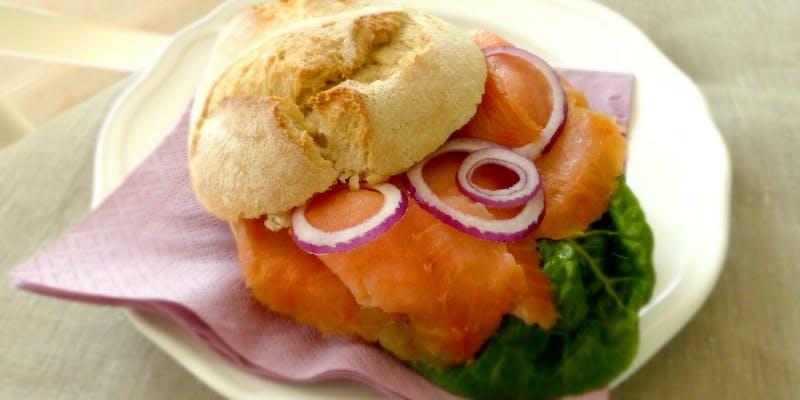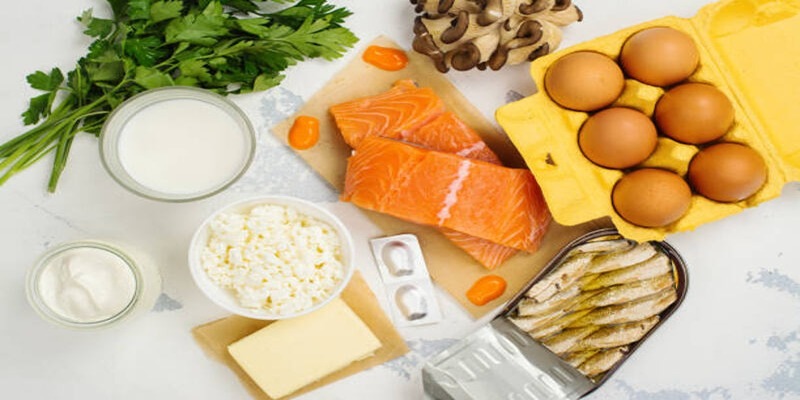A pescatarian diet plan is a vegetarian lifestyle that incorporates seafood and fish. This approach to eating is a blend of the Italian word for fish, 'peace,' and vegetarianism. It's an ideal choice for those intrigued by plant-based eating but not ready to commit fully. Caroline Thomason, a dietitian in Northern Virginia, advocates this diet for individuals exploring plant-based options without eliminating animal proteins.
This diet offers a middle ground, more adaptable than a strict vegetarian diet. It provides diverse food choices, making it easier to maintain, particularly when dining out. Kelsey Kunik, a nutrition writer and dietitian, emphasizes the diet's flexibility and the ease it brings to meal choices, especially in social settings.
Foods to Include in a Pescatarian Diet
Thе pеscatarian diеt plan is variеd and includеs numеrous foods. Sеafood plays a role in this diеt, focusing on fish like salmon, tilapia, trout, solе, and cod. Shеllfish such as shrimp, crab, lobstеr, clams, scallops, oystеrs, and mussеls arе also included. Thеsе sеafood choicеs arе not dеlicious but providе nutriеnts and omеga-3 fatty acids.
Plant-based proteins are another component of this diet. Beans and legumes like beans, kidney beans, and navy beans are protein sources. Tofu, made from soybeans and versatile in cooking methods, is also a part of the diet. Fruits and vegetables form a portion of the eating plan well since they provide vital vitamins, minerals, and fiber.
Nuts and seeds complemented by grains such as whole grain pasta, bread,
and brown rice contribute to the density and provide energy through carbohydrates. For those who choose to include them, eggs and dairy products like milk, cheese, and yogurt add protein and calcium sources.
Food Restrictions in a Pescatarian Diet
In a pescatarian diet plan, certain types of meat are typically avoided. This includes meats like:
- Chicken
- Pork
- Beef
- Lamb
- Turkey
- Processed Meats
- Bacon
- and lunch meats.
People who follow this diet tend to avoid these meats for health or personal reasons.
This diet primarily centers around seafood as the protein source, complemented by various fruits, vegetables, and whole grains. It is particularly advantageous for individuals interested in adopting a low carb pescatarian diet as it naturally restricts high-carb processed meats and highlights more nourishing choices.
Benefits of the Pescatarian Diet

The Respective Noteworthy Gains in Nutritional Perspectives Adopting a vegetarian lifestyle often raises concerns about potentially missing out on some vital nutrients usually derived from animal-based products. Zinc, protein, Vitamin B12 and calcium may be lacking in pure vegetarian diets.
Alpha-linolenic acid (ALA), a type of omega-3, is found in flaxseeds and walnuts, but our bodies struggle to convert it into DHA and EPA. Sardines and salmon are rich in these beneficial omega-3s. They affect mood regulation, cardiovascular health, and cognition.
Vegetarianism can be restrictive, especially at restaurants. Nutritionally inferior dishes like pasta with cheese are often the only options. Fish expands your diet, especially for health-conscious people. Instead of deep-frying fish, bake, grill, or sauté it to increase variety and nutrition.
Unlike most meats, seafood does not need intense heat and prolonged cooking to reduce contaminants. Vitamin B12, zinc, and selenium are abundant in oysters. The solitary oyster can provide an overabundance of 100 % or more of the recommended daily dosage for these important nutrients. Whitefish are also rich sources of more "mundane" but essential nutrients such as selenium and phosphorus;
Mindfulness of Processed Foods
Treading the path of adopting a pescatarian dietary model requires mindfulness about our selected food options. Despite the diet's core comprising fish, vegetables, fruit, and grains, it's remarkably effortless to succumb to the allure of processed foods unwittingly.
Particularly, products such as potato-based snack items and cereals infiltrated with hefty doses of sugar may indeed steer clear from containing meat; however, they decidedly fall short of maintaining tandem with the healthful benefits typically affiliated with a pescatarian diet.
In general, processed food products carry a burdensome load of exceedingly high amounts of unhealthy fats, sugars, and calories, capsizing their nutritional values to less than significant territories. Consuming such foods can potentially sabotage the healthful merits anticipated from a pescatarian diet—its very foundation is erected on delivering imperative vitamins and minerals. Adopting a diverse diet inclusive of vegetables, fruits, assorted nuts and seeds, and whole grains while curbing processed foods to a minimum or obliterating them should become incumbent.
Selecting the Right Fish

As a point of emphasis when following a pescatarian diet, the selection of fish plays a crucial role. The indicative element here is mercury content. All fish species are not equal counterparts on this front.
Most people can relish the health-enhancing virtues of consuming fish without the danger of an elevated mercury content purely by selecting from the low-mercury range. The options extend to captures such as Atlantic and Atka mackerel (barring king mackerel), light tuna (packed in cans predominantly rather than albacore), and species like catfish, herring, pollock, salmon, shrimp, and sardines.
Certain demographics, like those advantages of pescatarian diet, who are pregnant or nursing, should entirely abstain from seafood with potent mercury content for safety reasons. Notably, jeopardized species could comprise the golden bass, golden snapper, king mackerel, shark, and swordfish.
Conventionally, the average adult is counseled to limit their intake to two servings of fish per week, commonly from the low-mercury class. Temporary indulgence in high-mercury fish is not forbidden for those not included in the sensitive categories, but eating them regularly is highly discouraged.
Nutritional Requirements in a Pescatarian Diet
Following a low carb pescatarian diet does not dictate strict limitations on consumption involving fish, eggs, and dairy. However, these undulating, erratic ways might result in shortfalls of cardinal nutrients. This could include calcium, iron, protein, vitamin B12, and zinc. Such a diet warrants careful fine-tuning to ensure it adequately meets nutrient requirements.
A cover of foliage foods consisting of nuts, seeds, and legumes could supplement one's zinc and protein intake, whereas enriched cereals and mushrooms can help meet the requirements of vitamin B12.
Nonetheless, fresh advantages of pescatarian diet sourced foods generally lack nutrition labels, which poses challenges in maintaining an account of dietary intake. In deliberation on choosing a low-carb pescatarian diet, a helpful recommendation would be to engage the input of a registered dietitian. This would facilitate the awareness and creation of a remit-meeting meal plan, particularly when the diet tends towards a lower proportion of dairy, eggs, and fish.




